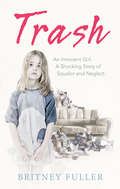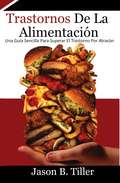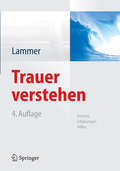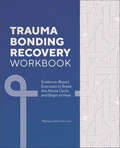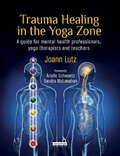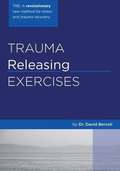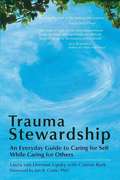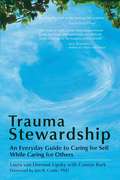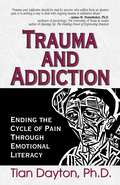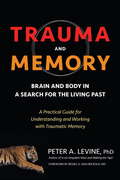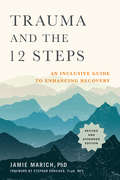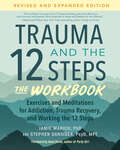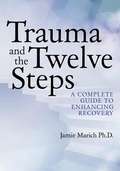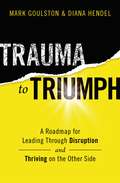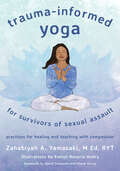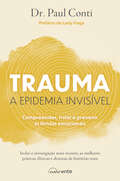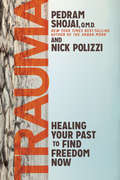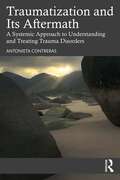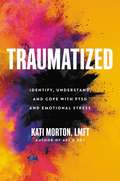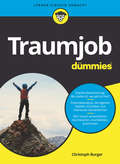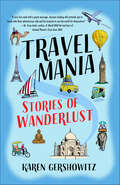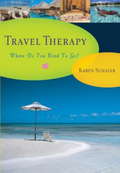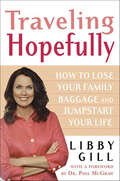- Table View
- List View
Trash: An Innocent Girl. A Shocking Story of Squalor and Neglect.
by Britney Fuller‘To start: it was just me and my mom. I am an only child, and she is a single parent. My mother is a trash hoarder. Ever since I can remember the house was always messy and stunk. At around age 9ish I noticed that something was wrong. I started throwing bags of trash away every day, just to have my mom freak out when she got home. We didn’t eat at home anymore because the fridge was disgusting, and she used the sink as a trash can, so it got clogged. We always ate out, we never had a home-cooked meal, and I’ve never had a family dinner at a dinner table. I had a stool in the corner of the living room. That is what I sat on, and that alone. I kept that corner as clean as I could. Made sure there was foot space, and that there wasn’t dust on the walls. That was my corner, my space. It never seemed to matter though, eventually that spot would get overrun with trash too...’Trash is Britney Fuller's shocking account of growing up in the house of a hoarder.
Trastornos de la Alimentación: Una guía sencilla para superar el trastorno por atracón
by Jason B. Tiller¿Desea deshacerse de problemas alimentarios y vivir una vida más feliz y satisfactoria? ¿Un bocado en una rosquilla se convierte con frecuencia en un atracón completo? ¿Lucha para controlar tu peso incluso cuando haces dieta? ¿Te sientes atrapado por esta obsesión y ansias de comer? Si es así, entonces estás en el lugar correcto. El trastorno por atracón no es solo el impulso físico de comer, sino la concentración emocional y consciente en la comida. El deseo de un consumo continuo de alimentos no tiene nada que ver con la disponibilidad de comida chatarra, sino con el impulso mental y emocional, que a menudo conduce al excitación. “TRASTORNOS DE LA ALIMENTACIÓN:UNA GUÍA SENCILLA PARA SUPERAR EL TRASTORNO POR ATRACÓN” es un producto de investigaciones bien detalladas realizadas por profesionales de trastornos de la alimentación. La pura ciencia detrás de la psicología del atracón se ha desmitificado en frases simples y fáciles de entender. Siguiendo los consejos que se proporcionan en este libro, puedes superar el atracón por tu cuenta. Puede superar las fluctuaciones de peso, los deseos de alimentos y la alimentación compulsiva. Contiene la clave para vivir una vida satisfactoria, comer bien y lograr la libertad total de los problemas alimentarios. Una vez que siga los consejos proporcionados en este libro, aprenderá cómo desarrollar habilidades para la vida para una alimentación saludable y acabará con el atracón permanente. Como beneficio adicional, la última sección de este libro proporciona consejos sobre cómo ayudar a un amigo con un trastorno por atracón. Para cambiar tu vida, desplázate hacia arriba y obtén este libro.
Trauer verstehen
by Kerstin LammerTrauer verstehen Trauernden wirksam helfen, ihren Verlust zu bewältigen und sich in einer veränderten Lebenssituation neu zu orientieren - das leistet professionelle Trauerbegleitung. Wie das geht, zeigt dieses Buch. Kurz und bündig werden die Ergebnisse neuerer internationaler Trauerforschung aufbereitet und zu einem Praxismodell entwickelt. Drei Querschnitte präsentieren: - Studien, die Formen der Trauer beschreiben, - Theorien, die Trauer psychologisch erklären, - Modelle, die Trauer bewältigen helfen Mit vielen Schaubildern und Beispielen aus der Praxis. Formen, Erklärungen, Hilfen Der Leser, die Leserin findet ein verständliches Buch, das mit Mythen über Trauerprozesse aufräumt und eine hilfreiche Basis für die Bewältigungsarbeit mit Betroffenen sein kann. Die Autorin identifiziert Aufgaben, die Trauernde nach dem Verlust eines für sie bedeutsamen Menschen bewältigen müssen. Sie entwickelt daraus - als geeignetere Alternative zu gängigen Phasenmodellen - ihr Aufgabenmodell der Trauerbegleitung: - Tod begreifen helfen (Realisation) - Reaktionen Raum geben (Initiation) - Anerkennung des Verlusts äußern (Validation) - Übergänge unterstützen (Progression) - Erinnern und Erzählen ermutigen (Rekonstruktion) - Risiken und Ressourcen einschätzen (Evaluation) Eine praxisnahe Basis für die professionelle Beratung Trauernder
Trauma Bonding Recovery Workbook: Evidence-Based Exercises to Break the Abuse Cycle and Begin to Heal
by Nashay LorickOvercome toxic relationship bonds and begin to heal Freeing yourself from a trauma bond can feel overwhelming. But with the right tools, you can let go of the past and move forward to a brighter future. This supportive workbook is filled with evidence-based strategies and exercises to help you break the cycle of abuse and thrive.Understand your experience—Learn what trauma bonding is and gain insight from the stories of other people who have experienced abuse.Discover tools for healing trauma—Build skills for breaking your toxic relationship with proven exercises like starting a walking meditation practice and rating your level of self-care.Beyond trauma—Explore the aftermath of leaving an abuser, including managing difficult emotions and grief, reclaiming your identity, avoiding relapse, and preparing to move forward with your new life.Empower yourself and take control of your future with this supportive workbook.
Trauma Healing in the Yoga Zone: A Guide for Mental Health Professionals, Yoga Therapists and Teachers
by Joann LutzThe book describes an original model of nervous-system informed, trauma-sensitive yoga, a synthesis of classic yoga, somatic psychotherapy, and neuroscience research. It is organized around the eight stages of classic yoga practice and includes scripts of chair yoga postures, the three-part deep breath, and the Integral Yoga version of yoga nidra, for use by professionals who are not certified as yoga teachers.The book is needed for three reasons: mainstream psychotherapy has, until recently, ignored the body, a major element in the healing of trauma and other emotional and mental dysregulations. It has also omitted the wisdom from the world's great spiritual traditions, perpetuating an artificial separation between religion/spirituality and science. The field is also currently being enriched by empirical data from the field of neuropsychology that describes brain function. The profession is ready to transform and embrace a holistic model and yoga can play a significant role in that transformation.The book is primarily intended for mental health professionals and yoga therapists and teachers, both civilian and in the military. It could be of interest to professionals in related fields, such as medicine, as well as the general population of people interested in yoga and healing.
Trauma Releasing Exercises (TRE): A Revolutionary New Method For Stress/trauma Recovery
by David BerceliThis book explains many aspects of the trauma recovery process in uncomplicated language and uses basic concepts for the non-professional. It includes the ground-breaking, Trauma Releasing Exercises (TRE). These exercises elicit mild psychogenic tremors that release deep chronic tension in the body and assist the individual in the trauma healing process.
Trauma Stewardship: An Everyday Guide to Caring for Self While Caring for Others
by Laura van Dernoot Lipsky Connie BurkLaura van Dernoot Lipsky offers a deep and empathetic survey of the often-unrecognized toll on those working to make the world a better place. We may feel tired, cynical, numb, or like we can never do enough.
Trauma Stewardship: An Everyday Guide to Caring for Self While Caring for Others (Bk Life. Ser.)
by Connie Burk Laura van Dernoot LipskyThis beloved bestseller—over 180,000 copies sold—has helped caregivers worldwide keep themselves emotionally, psychologically, spiritually, and physically healthy in the face of the sometimes overwhelming traumas they confront every day.A longtime trauma worker, Laura van Dernoot Lipsky offers a deep and empathetic survey of the often-unrecognized toll taken on those working to make the world a better place. We may feel tired, cynical, or numb or like we can never do enough. These, and other symptoms, affect us individually and collectively, sapping the energy and effectiveness we so desperately need if we are to benefit humankind, other living things, and the planet itself. In Trauma Stewardship, we are called to meet these challenges in an intentional way. Lipsky offers a variety of simple and profound practices, drawn from modern psychology and a range of spiritual traditions, that enable us to look carefully at our reactions and motivations and discover new sources of energy and renewal. She includes interviews with successful trauma stewards from different walks of life and even uses New Yorker cartoons to illustrate her points."We can do meaningful work in a way that works for us and for those we serve," Lipsky writes. "Taking care of ourselves while taking care of others allows us to contribute to our societies with such impact that we will leave a legacy informed by our deepest wisdom and greatest gifts instead of burdened by our struggles and despair."
Trauma and Addiction: Ending the Cycle of Pain Through Emotional Literacy
by Dr. Tian DaytonFor the past decade, author Tian Dayton has been researching trauma and addiction, and how psychodrama (or sociometry group psychotherapy) can be used in their treatment. Since trauma responses are stored in the body, a method of therapy that engages the body through role play can be more effective in accessing the full complement of trauma-related memories. This latest book identifies the interconnection of trauma and addictive behavior, and shows why they can become an unending cycle. Emotional and psychological pain so often lead to self-medicating, which leads to more pain, and inevitably more self-medicating, and so on--ad infinitum. This groundbreaking book offers readers effective ways to work through their traumas in order to heal their addictions and their predilection toward what clinicians call self-medicating (the abuse of substances [alcohol, drugs, food], activities [work, sex, gambling, etc.] and/or possessions [money, material things].) Readers caught up in the endless cycle of trauma and addiction will permanently transform their lives by reading this book. Therapists treating patients for whom no other avenue of therapy has proved effective will find that this book offers practical, lasting solutions. Case studies and examples of this behavioral phenomenon will illustrate the connection, helping readers understand its dynamics, recognize their own situations and realize that they are not alone in experiencing this syndrome. The author deftly combines the longstanding trauma theories of Van der Kolk, Herman, Bowlby, Krystal and others with her own experiential methods using psychodrama, sociometry and group therapy in the treatment of addiction and posttraumatic stress disorder. While designed to be useful to therapists, this book will also be accessible to trade readers. It includes comprehensive references, as well as a complete index.
Trauma and Forgiveness
by C. Fred AlfordContrary to the view of trauma popularized by literary theorists, Trauma and Forgiveness argues that the traumatized are capable of representing their experience and that we should therefore listen more and theorize less. Using stories and case studies, including testimonies from Holocaust survivors, as well as the victims of 'ordinary' trauma, C. Fred Alford shows that, while the traumatized are generally capable of representing their experience, this does little to heal them. He draws on the British Object Relations tradition in psychoanalysis to argue that forgiveness, which might be expected to help heal the traumatized, is generally an attempt to avoid the hard work of mourning losses that can never be made whole. Forgiveness is better seen as a virtue in the classical sense, a recognition of human vulnerability. The book concludes with an extended case study of the essayist Jean Amery and his refusal to forgive.
Trauma and Memory
by Peter A. Levine Bessel A. van der KolkIn Trauma and Memory, bestselling author Dr. Peter Levine (creator of the Somatic Experiencing approach) tackles one of the most difficult and controversial questions of PTSD/trauma therapy: Can we trust our memories? While some argue that traumatic memories are unreliable and not useful, others insist that we absolutely must rely on memory to make sense of past experience. Building on his 45 years of successful treatment of trauma and utilizing case studies from his own practice, Dr. Levine suggests that there are elements of truth in both camps. While acknowledging that memory can be trusted, he argues that the only truly useful memories are those that might initially seem to be the least reliable: memories stored in the body and not necessarily accessible by our conscious mind.While much work has been done in the field of trauma studies to address "explicit" traumatic memories in the brain (such as intrusive thoughts or flashbacks), much less attention has been paid to how the body itself stores "implicit" memory, and how much of what we think of as "memory" actually comes to us through our (often unconsciously accessed) felt sense. By learning how to better understand this complex interplay of past and present, brain and body, we can adjust our relationship to past trauma and move into a more balanced, relaxed state of being. Written for trauma sufferers as well as mental health care practitioners, Trauma and Memory is a groundbreaking look at how memory is constructed and how influential memories are on our present state of being.
Trauma and the 12 Steps, Revised and Expanded: An Inclusive Guide to Enhancing Recovery
by Jamie MarichAn inclusive, research-based guide to working the 12 steps: a trauma-informed approach for clinicians, sponsors, and those in recovery.Step 1: You admit that you're powerless over your addiction. Now what?12-step programs like Alcoholics Anonymous (AA) and Narcotics Anonymous (NA) have helped countless people on the path to recovery. But many still feel that 12-step programs aren't for them: that the spiritual emphasis is too narrow, the modality too old-school, the setting too triggering, or the space too exclusive. Some struggle with an addict label that can eclipse the histories, traumas, and experiences that feed into addiction, or dismisses the effects of adverse experiences like trauma in the first place. Advances in addiction medicine, trauma, neuropsychiatry, social theory, and overall strides in inclusivity need to be integrated into modern-day 12-step programs to reflect the latest research and what it means to live with an addiction today.Dr. Jamie Marich, an addiction and trauma clinician in recovery herself, builds necessary bridges between the 12-step's core foundations and up-to-date developments in trauma-informed care. Foregrounding the intersections of addiction, trauma, identity, and systems of oppression, Marich's approach treats the whole person--not just the addiction--to foster healing, transformation, and growth.Written for clinicians, therapists, sponsors, and those in recovery, Marich provides an extensive toolkit of trauma-informed skills that: • Explains how trauma impacts addiction, recovery, and relapse • Celebrates communities who may feel excluded from the program, like atheists, agnostics, and LGBTQ+ folks • Welcomes outside help from the fields of trauma, dissociation, mindfulness, and addiction research • Explains the differences between being trauma-informed and trauma-sensitive; and • Discusses spiritual abuse as a legitimate form of trauma that can profoundly impede spirituality-based approaches to healing.<
Trauma and the 12 Steps--The Workbook: Exercises and Meditations for Addiction, Trauma Recovery, and Working the 12 Steps--Revised and expanded edition
by Jamie Marich Stephen DansigerYour definitive trauma-sensitive guide to working the Steps: skills for understanding your addiction, processing your trauma, and navigating your recovery journey—the anticipated companion to Trauma and the 12 Steps. This addiction recovery workbook from clinicians Jamie Marich, PhD, and Stephen Dansiger offers skills to prevent relapse, enhance recovery, and understand how trauma impacts alcoholism, drug dependency, and even other types of addictions. Working the Steps for the first time can feel scary and unfamiliar—and depending upon the experiences you&’ve had at AA or NA, you may question whether the 12 Steps are right for you. Here, Marich and Dansiger help you get to the root of your addiction while offering skills and exercises for an inclusive recovery program. Unlike some 12-Step programs, this workbook is open to all—regardless of your background, history, identity, or spiritual beliefs. It also recognizes that for most of us on recovery or sobriety journeys, each Step isn&’t made to be worked through only once: this workbook is designed to support your individual needs, whether that&’s practicing one step on a day-to-day basis, revisiting another at different times throughout your recovery process, or using the exercises as part of a yearly check-in. The workbook begins with a self-care inventory, then moves through each of the 12 steps with prompts, meditations, journaling reflections, and body-based exercises. The authors also offer coping skills and an open-minded approach that acknowledges that your recovery is as unique as you are: one-size-fits-all doesn&’t apply. Compassionate, trauma-responsive, and grounded in the latest behavioral and neuroscience research, this workbook is your go-to addiction recovery toolkit.
Trauma and the Twelve Steps: A Complete Guide For Enhancing Recovery
by Jamie MarichGetting this book to press has been a bit of an uphill battle. In preparing this manuscript for publication, I ran into the same struggles that I encounter working as a clinician in the helping professions. Mental health publishers felt that this book was "too addiction." Addiction publishers felt it was "too mental health." Academic publishers called it too "colloquial," and self-help publishers too "academic."
Trauma to Triumph: A Roadmap for Leading Through Disruption (and Thriving on the Other Side)
by Mark Goulston Diana HendelHow to successfully navigate through crisis or trauma—and come out stronger on the other side. This leadership roadmap shows you the way.Organizational trauma takes many forms. It could be a pandemic that disrupts everything about the way people work. An economic meltdown. An act of violence. A failed merger. A layoff—or continual threats of one. Whatever the scenario, events like these can traumatize leaders and employees, sending everyone into survival mode. If the crisis is not &“named and claimed&” as trauma and managed effectively, it&’s sure to linger on in the form of chronic stress and anxiety. And left unspoken and unaddressed, blame, shame, and guilt often permeate the culture of the organization and erode its ability to thrive in the future. Here&’s the good news: when leaders navigate a traumatic event effectively, the organization doesn&’t just survive. It can be transformed and flourish in ways previously unimagined.In Trauma to Triumph: A Roadmap for Leading Through Disruption and Thriving on the Other Side, Mark Goulston, MD, and Diana Hendel present a visionary and tactical roadmap to help leaders create stability in the midst of chaos and uncertainty, move productively through a traumatic event, and come out even stronger and better on the other side.Here are just a few things you&’ll learn:How the survival mechanism manifests in employees and leaders in the midst of traumaThe predictable polarities, dilemmas, tensions and other patterns that emerge in traumatized organizations…and how to break these cyclesWhy lack of clarity in roles and poor communication are so dangerous in times of crisis (and how to avoid these common pitfalls)How leaders can shift to a mindset that helps them create feelings of trust, confidence, safety, respect, and inspiration in employees.Best practices for leading yourself and others through crisis; grieving losses, embracing healthy coping mechanisms, reframing, and moreHow to launch a rapid-response process that allows you to &“control the controllables&” and create a framework for making better decisions in the throes of crisisHigh-impact tactics to help your organization recover and heal in a way that doesn&’t just return to baseline, but transcends itFilled with tools and tactics, Trauma to Triumph is an organization-wide blueprint for navigating a future where we&’re likely to experience one stretch of whitewater after another. It gives leaders at every level the guidance they need to create confidence, courage, and enthusiasm in their team. It&’s not just about being prepared for future crises. It&’s also about leading in a new way in the times of stability in between—a way that creates a stronger, better company.
Trauma-Informed Yoga for Survivors of Sexual Assault: Book and Card Deck Set
by Zahabiyah YamasakiTrauma-informed yoga guidance for survivors, instructors, and mental health professionals. Trauma-Informed Yoga for Survivors of Sexual Assault provides a comprehensive overview of how to offer yoga to survivors of sexual assault in a safe, effective, evidence-based, and healing way. Zahabiyah A. Yamasaki, program director of Trauma Informed Programs at UCLA and founder of Transcending Sexual Trauma through Yoga, draws on the framework of trauma-informed care and trauma-informed yoga program development and curriculum, while also weaving in personal narrative and inspiring survivor stories. This book explores practical considerations for survivors, as well as for yoga teachers, mental health professionals, educators, and other healing professionals who are interested in integrating trauma-informed yoga into the scope of their work and/or healing. This book expands the scope and framework for healing and fills a much-needed gap in service delivery for survivors. Yamasaki provides holistic, trauma-informed, body-based, compassionate, and culturally affirming options for survivors as they navigate what is oftentimes a lifelong and nonlinear process of healing.
Trauma: A Epidemia Invisível
by Paul ContiPrefaciado por Lady Gaga, um livro essencial para compreender, tratar e prevenir todas as feridas emocionais. Partindo da investigação mais recente, das melhores práticas clínicas e de dezenas de histórias reais, este é um livro essencial para perceber a pandemia traumática que vivemos. «Sensatez e paciência prevalecem neste olhar único sobre um assunto amplamente ignorado pela comunidade médica durante anos. É uma leitura obrigatória para profissionais, bem como para quem tenha vivido um trauma ou outro sofrimento psicológico.» Tommy Hilfiger, estilista e empresário «O Dr. Conti é psiquiatra, e alguém que também passou por muita coisa. Isto dá-lhe uma perspetiva única acerca de como as pessoas funcionam e de como os traumas nos modificam, e, especificamente, como o trauma nos leva a pensar e a agir de modo diferente sem que percebamos porquê. O Dr. Conti explica como o trauma interage com a forma como o nosso cérebrotrabalha, e como o trauma é afetado por certos aspetos da sociedade, através de vívidas ilustrações de pessoas reais e das suas vidas. Mas o livro não fica por aí. Fornece também soluções reais — soluções que as pessoas poderão usar para si próprias e para os seus entes queridos,e soluções para ajudar a que o mundo se torne um sítio mais bondoso e seguro.» Kim Kardashian, modelo e empresária «Posso agora dizer com certeza que o Dr. Paul Conti me salvou a vida. Fez com que ela valesse a pena ser vivida. Mas, mais importante, deu-me a capacidade de me redescobrir e de me recuperar.» Lady Gaga, cantora e atriz, in Prefácio «Depois de ler o excelente livro de Paul Conti, percebo agora que o trauma existe em todos nós. Às vezes lembramo-nos dele, mas mesmo quando não conseguimos, ele lembra-se de nós, impedindo-nos de viver as nossas vidas com plenitude. Até que o possamos identificar e clarificar, vivemos com medos, ansiedades e máscaras. O livrode Paul Conti ajuda-nos a identificar o(s) trauma(s) que sofremos nas nossas vidas e a avançar em direção à cura – uma tarefa nada fácil no mundo traumático de hoje.» Carole Bayer Sager, cantora e compositora
Trauma: Healing Your Past to Find Freedom Now
by Pedram Shojai Nick PolizziYou are not doomed to be trapped by your traumaTrauma is unresolved pain. It hums in the background of our lives and robs us of the joy, faith, peace, and love we fully deserve. In their groundbreaking book, Pedram Shojai, O.M.D., New York Times best-selling author of The Urban Monk and The Art of Stopping Time, and Nick Polizzi, author of The Sacred Science, take you on a journey that encompasses: • a clear understanding of trauma, where it comes from, and how it affects every part of your life • an exploration of modern and ancient therapies and practices for healing • real-life tragedies turning into stories of triumph, hope, and survival Drawn from the wisdom and insights of the world's top doctors, therapists, and experts, Trauma will show you that no matter what you have endured, how long you have carried it, or how deeply embedded it is, you can be free from pain and suffering. Your road to recovery and whole-body healing is before you, and with it the richer and more profound connections that you seek with yourself and your loved ones.
Traumatization and Its Aftermath: A Systemic Approach to Understanding and Treating Trauma Disorders
by Antonieta ContrerasTraumatization and Its Aftermath delves deep into the complexities of traumatization and is a practical, comprehensive guide to understanding and overcoming the impacts of adverse circumstances. In these pages, readers will gain valuable insights into trauma’s diverse forms and the importance of understanding traumatization on an individual level. This book answers questions including "Why don’t some people heal as easily as others?" "Why do some people experience trauma after ‘seemingly insignificant’ incidents?" and "Why does overdiagnosis fail so many people?" Readers can also find criteria for evaluating their own trauma, information on how to heal from a trauma disorder, and better ways for treating complex trauma. Traumatization and Its Aftermath guides readers through each element of the personalized struggle for survival and offers compassionate and patient explanations on how to shorten this struggle—and even prevent it. Packed with detailed resources and accessible storytelling, this book is a must read for clinicians and anyone looking to better understand the mind, body, and natural ability to heal.
Traumatized: Identify, Understand, and Cope with PTSD and Emotional Stress
by Kati MortonAn accessible guide to understand what trauma is, how PTSD is diagnosed, being aware that it can have a late onset, what can happen if it goes untreated--and how social media can be triggering our trauma Recovery from trauma and PTSD is an especially vital topic these days. Trauma is emotional stress that can stem from a wide variety of upsetting experiences, leaving us feeling anxious, weighed down by negative emotions or memories, or feeling like we lack security. No one's experience and recovery from it is the same. In Traumatized, as both a licensed clinical therapist and YouTube creator, Morton shares a unique perspective on trauma in the modern age, weaving the link between trauma and social media throughout the book--both the positive (how social media promotes mental health awareness) and the dark side of how social media can spread trauma. What social media platforms or accounts are detrimental to our mental health? How can we start paying attention to how we interact with them? What are the best ways to limit the amount of time we spend on certain sites or even unfollow accounts that seem to trigger that trauma response? Traumatized shares tools to manage what we (and our children) can see online.
Traumjob für Dummies (Für Dummies)
by Christopher BurgerSpielen Sie mit dem Gedanken, beruflich umzusatteln? Oder sind Sie als Berufseinsteiger auf der Suche nach einem Beruf, der Sie erfüllt und begeistert? Dieses Buch hilft Ihnen, dass es nicht beim Träumen bleibt. Beginnen Sie mit einer Bestandsaufnahme (Wo stehen Sie heute?). Ermitteln Sie mithilfe einer Potenzialanalyse Ihre Stärken und Schwächen (Was können Sie?). Finden Sie heraus, welche Motive und Interessen Sie haben (Wovon träumen Sie?). Und entwickeln Sie dann einen konkreten Plan und setzen Sie ihn Schritt für Schritt in die Tat um. Christoph Burger begleitet Sie von der ersten noch vagen Idee bis hin zu Ihrem Traumjob. Der Karriereberater stellt die richtigen Fragen, unterstützt Sie mit Checklisten und handfesten Tipps und motiviert Sie durchzuhalten bis Sie beruflich am für Sie richtigen Ort angekommen sind.
Trave o Negativismo em 7 Passos Fáceis: Treino fácil para ultrapassar a depressão & o pessimismo
by A. J. ParrTRAVE O NEGATIVISMO EM 7 PASSOS FÁCEIS: TREINO FÁCIL PARA ULTRAPASSAR A DEPRESSÃO & O PESSIMISMO (Compreendendo Eckhart Tolle, Dalai Lama, Krishnamurti, Ramana Maharshi e outros!) ESTES EXERCÍCIOS E LIÇÕES CRUCIAIS irão ajudá-lo a quebrar com o hábito dos pensamentos negativos e começar a vivenciar a alegria de Viver, com os ensinamentos dos Mestres do Iluminismo: Eckhart Tolle, Dalai Lama, Krishnamurti, Ramana Maharshi e outros! Os cientistas estimam que em condições normais o ser humano tenha regularmente uma média de 30.000 a 40.000 pensamentos por dia. E, de acordo com as investigações, a depressão é sempre precedida por pensamentos negativos repetitivos e não o oposto, e reduzir o número de pensamentos negativos diários na realidade reduz tanto a frequência como a intensidade dos sentimentos e emoções depressivas! Estas descobertas cruciais constituem o ponto de partida das 7 lições e dos 7 exercícios contidos neste manual para principiantes, concebido para o ajudar a ultrapassar o hábito dos pensamentos negativos, Agora! LIÇÃO 1: O VALOR DA ADVERSIDADE Exercício: Travar os Nossos Pensamentos LIÇÃO 2: SOMOS O QUE PENSAMOS Exercício: Observar os Nossos Pensamentos LIÇÃO 3: A VOZ DO SUBCONSCIENTE Exercício: Meditação da Respiração LIÇÃO 4: PENSAMENTOS NEGATIVOS REPETITIVOS Exercício: Sentir o Corpo Interior LIÇÃO 5: ENCURRALADO NO PASSADO E NO FUTURO Exercício: O Intervalo Sem Tempo LIÇÃO 6: NEGATIVISMO E RESISTÊNCIA Exercício: Render-se ao Agora LIÇÃO 7: VIVENCIAR A ALEGRIA DE VIVER Exercício: Ultrapassar os Pensamentos Negativos . Do que está à espera? Tire uns minutos e leia este manual breve e acessível e comece a sua transformação ainda hoje!
Travel Mania: Stories of Wanderlust
by Karen GershowitzSince leaving home for Europe alone at age seventeen, Karen Gershowitz has traveled to more than ninety countries. In pursuit of her passion for travel, she lost and gained friends and lovers and made a radical career change. She learned courage and risk taking and succeeded at things she didn’t think she could do: She climbed Mt. Kilimanjaro. She visited remote areas of Indonesia on her own and became a translator, though only fluent in English. She conquered her fear of falling while on an elephant trek in Thailand. And she made friends across the globe, including a Japanese family who taught her to make sushi and a West Berliner who gave her an insider’s look at the city shortly after the wall came down. An example that will inspire armchair travelers to become explorers and embolden everyone to be more courageous, Travel Mania is a vivid story of how one woman found her strength, power, and passion. Travel is Karen’s addiction—and she doesn’t want treatment.
Travel Therapy
by Karen SchalerFor some, the only way to get over a break-up is to keep moving; for others, the only solace is a spa vacation. Tired of the same old routine, one woman might opt for a trip where the sole focus is helping others; another may decide that the only real escape is a Girlfriend Getaway with her best friends. According to three-time Emmy-Award winning author Karen Schaler, the only way to change your attitude is by changing your environment - and Travel Therapy is the guide to help you get there.With 101 unique destinations, Travel Therapy is geared toward helping readers refresh and find themselves, whether they're dealing with a breakup or divorce, celebrating retirement, or looking to shake things up. Every chapter includes quizzes, travel tips, and extensively researched links to the best destination-specific websites to help you figure out the perfect destination for you. From daring destinations to soothing spa escapes, Travel Therapy is your road map to self-discovery, happiness, and success - whether it's zip-lining in Belize, helping orphaned children in Africa, or beachcombing the Caribbean.
Traveling Hopefully: How to Lose Your Family Baggage and Jumpstart Your Life
by Libby Gill"This book is for real, because Libby is for real..."- Dr. Phil McGraw in his foreword to Traveling HopefullyAre you living a life based on who you really are or one built on outdated messages from your past? Is your past negatively influencing your present and potentially derailing your future? What if you could shift your perspective from limiting to liberating?Now you can learn to let go of your baggage and create a life of passion and purpose. Success strategist and executive coach Libby Gill is your partner in life change as she shares her inspiring story and guides readers step-by-step through the journey of self-transformation.With courage and candor, Libby poignantly discloses how she struggled with a family legacy which included divorce, mental illness and molestation, robbing her of her best possible life until she learned to dissect the past so she could direct the future. With a transformative process she calls the Five Steps to Jumpstart Your Life, Libby provides practical tools and down-to-earth insights that translate abstract concepts into concrete action.The 21 Hopeful Tools are easy-to-follow exercises that take readers through this process, showing them how to:*dissect the past to direct the future*link internal clarity with external action*create a Traveling Hopefully personal roadmap*recruit a Support Squad to provide information and inspiration*keep moving toward what you want and away from what no longer serves youFilled with tips and tactics, personal accounts, and client success stories, Traveling Hopefully shows readers how to create big-picture visions and turn them into bottom-line action so they can lose their baggage and live the life of their dreams.
